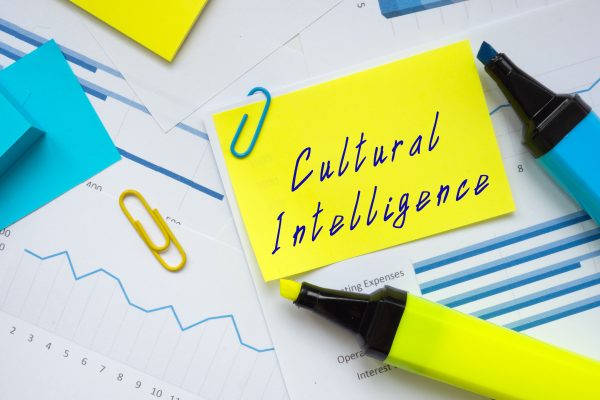Over the next few posts across the summer, we will focus on how new leaders can succeed.
We will look at the knowledge, skills, and attitude required to be successful in a changing leadership landscape.
The role of a leader has evolved significantly as our teams handle the huge amount of change that has happened since the start of this decade.
Our teams are working remotely; we are in the worst skill short market in recent times, with over fifty per cent of businesses suffering, and a shift in the mental health of our employees means that leaders need to develop their skill set and approach like never before.
As an introduction to our series, this blog post will delve into the key essential skills new leaders need to consider to be effective leaders today.
Let’s start at the beginning with how you communicate.
Impactful and Effective Communication
Communication lies at the core of successful leadership. As a new leader, you must master the art of communicating to build strong relationships, inspire your team, and align everyone toward the organisation’s vision, mission, and goals.
Being an effective communicator includes active listening, empathetic communication, and the ability to articulate ideas clearly and concisely, Both face-to-face, in groups, and in the written word.
By fostering open and transparent communication channels, you can promote collaboration, resolve conflicts, drive engagement, and help your team members perform at their best.
Understanding and working with other communication styles is critical to learning and developing your emotional intelligence, which we will move on to next.
Emotional Intelligence

Emotional intelligence plays a pivotal role in effective leadership. It involves self-awareness, self-management, and understanding others’ behaviours and emotions.
Becoming emotionally intelligent will allow you to demonstrate empathy and understanding, which will support fostering a culture of inclusivity, so vital for all members of your team to experience.
By developing your emotional intelligence, you can create a positive and supportive work environment as a new leader, build trust with your team members, and effectively manage the many challenges you will face.
Become Agile

I
n today’s dynamic economy, change is the only constant. New leaders must embrace adaptability and agility to navigate evolving market trends, technological advancements, and shifting business strategies. This skill involves being open to new ideas, approaches, and perspectives and quickly adapting to change and uncertainty. By fostering a culture of flexibility, you can help your team embrace change, remain resilient, and seize opportunities.
The first step in this process is raising resilience. To find out more about our new resilience programme, visit here.
Strategic Thinking and a Helicopter View
Strategic thinking is crucial for new leaders in today’s economy. It involves developing a long-term vision, setting goals, analysing data and market trends, and making informed decisions that drive the organisation forward.
By embracing strategic thinking, you can anticipate challenges, identify opportunities, and adapt your business strategies to stay ahead of the competition. This skill enables you to make well-informed decisions that align with your organisation’s mission and vision.
Digital Dynamics

In today’s digital age, new leaders must possess a strong foundation in digital literacy, both from their application and how they impact human beings.
Business leaders have discussed the ‘usefulness’ of A.I. for several years, and last year, software applications burst onto the scene like never before.
Resulting in an open letter signed by leaders including Apple co-founder Steve Wozniak, Twitter CEO Elon Musk, and Yoshua Bengio, founder of A.I. research institute Mila, warning there must be checks on the rate of A.I. progress.
They shared that; “advanced A.I. could represent a profound change in the history of life on Earth and should be planned for and managed with commensurate care and resources,” said the letter published by the Future of Life Institute, a non-profit for mitigating risks of transformative technology. “Unfortunately, this level of planning and management is not happening.”
Already we have seen a loss of jobs in organisations and some Gen Z employees suffering from more stress as they ‘worry’ about their future.
Something leaders must address, which leads us to the need to become supportive of our employees by developing our soft skills as coaches and mentors.
Master Coaching and Mentoring

Coaching and mentoring continue to grow within companies as organisations strive to help their people. A recent report by Sheridan Worldwide stimulated by data showing that 70% of employees say they will leave predicts the following key shifts.
A greater focus on Gen Z engagement – with a 134% increase in this generation switching jobs relative to before the pandemic, compared with a 24% increase in Millennials, keeping Gen Z employees engaged is crucial for talent retention. It’s expected that reverse mentoring will be used increasingly by organisations to achieve this.
The development of team coaching – With teams working virtually for some or all of the week, it’s become harder to ensure these continue operating as cohesive units. Businesses can develop well-trained and highly functioning teams by embracing team coaching via recent technological advancements.
Supporting internationalisation – the pandemic led to new ways of working, which has, in turn, allowed more organisations to now operate on a fully global scale.
But this brings challenges in managing onboarding processes, cultural differences, and effective communication. Therefore, digital mentoring and coaching will be crucial in overcoming these barriers.
Effective leaders are managers, coaches, and mentors for their team members. By developing coaching and mentoring skills, new leaders can guide and support their employees’ professional growth, provide constructive feedback, and empower them to reach their full potential. This skill promotes a culture of continuous learning, improves employee engagement, and builds a high-performing team.
Problem-solving and Decision-making
Problem-solving and decision-making are critical skills for new leaders. As a leader, you will encounter various challenges and complex situations. Developing strong problem-solving skills allows you to identify and analyse problems, generate innovative solutions, and implement effective strategies. Additionally, honing your decision-making abilities enables you to make timely and well-informed decisions that drive positive outcomes for your organisation.
Resilience and Stress Management
On the Zestfor blog, we have shared several posts about resilience and how important it is to be resilient and develop this trait within each team member.
Building resilience and stress management skills is crucial to effectively navigating the role’s pressures. By managing stress and maintaining composure, you can make clear-headed decisions, motivate your team during challenging times, and promote a healthy work-life balance.
Prioritising self-care and supporting your team’s well-being will contribute to a positive and productive work environment.
Cultural Intelligence

Leaders must possess cultural intelligence to navigate diverse and multicultural teams in today’s globalised world. Cultural intelligence involves embracing diversity and inclusion, understanding and respecting different cultures, and fostering a work environment that values and leverages diversity.
By promoting inclusivity, you can unlock the full potential of your team, encourage creativity, and drive innovation.
A lot to do….
As a new leader in today’s economy, developing and honing the key skills discussed in this blog post will set you on the path to success. Adaptability, effective communication, emotional intelligence, strategic thinking, digital literacy, coaching and mentoring, problem-solving, resilience, and cultural intelligence are essential for navigating the complexities of the modern business landscape.
Over the coming weeks, we will dive into each of these areas to share more ideas on developing each of these skills.
Until next time,
Julia Carter
About Zestfor
Zestfor delivers training coaching and development programs and resources scientifically tailored to develop leaders and their teams in technical markets – including Pharmaceutical, I.T., and Life Sciences.
Our blend of in-classroom, online, and virtual live-stream delivery methods will engage and assure even the most introverted team members from the first meeting.
You can find out more about our new Raising Resilience programmes here. Or call us on 0845 548 0833.









